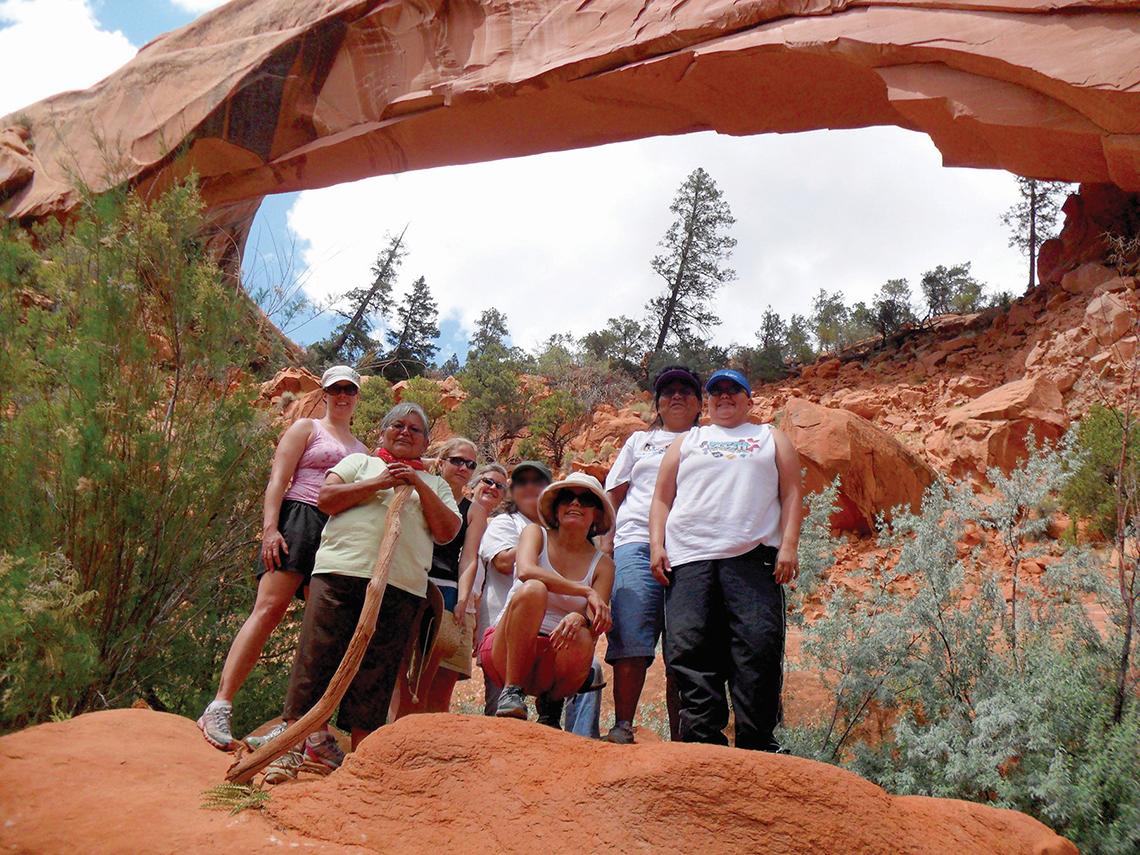NIDDK’s Knowler Retires After 46 Years

With September marking his official retirement after nearly 50 years at NIH, Dr. William Knowler leaves behind an extraordinary legacy. Since 1979, he has served as chief of NIDDK’s diabetes epidemiology and clinical research section in the Phoenix Epidemiology and Clinical Research Branch (PECRB), where he has devoted decades of practice-changing research into diabetes and its complications, particularly among Southwest American Indian populations.
“Dr. Knowler is widely recognized as the leading researcher furthering our understanding of the causes, prevention and treatment of type 2 diabetes and related complications,” said NIDDK scientific director Dr. Michael Krause. “His research has consistently driven clinical practice to prevent and treat this prevalent disease.”
Knowler, who received his M.D., M.P.H. and Dr.P.H. degrees from Harvard University, joined NIDDK’s PECRB in 1975. His research programs have included a 43-year longitudinal study that uncovered risk factors for type 2 diabetes and its complications, and several groundbreaking, multi-center studies, such as the Diabetes Prevention Program (DPP), the DPP Outcomes Study (DPPOS) and Action for Health in Diabetes (Look AHEAD) clinical trials.
DPP and DPPOS showed that weight loss through moderate physical activity and healthy eating or the medicine metformin can help prevent or delay type 2 diabetes—changing how people approach prevention of this disease worldwide. The Look AHEAD clinical trial showed that a lifestyle intervention in adults with type 2 diabetes reduced the risk of many, but not all, diabetes complications.
“In my opinion, Dr. Knowler has contributed more to improve the health of people with type 2 diabetes mellitus than any other physician/scientist, especially for Native Americans of the Southwest,” said PECRB chief Dr. Clifton Bogardus II.
For decades, Knowler and other PECRB scientists have worked closely with Southwest American Indian communities to gain valuable insight into the disease’s risk factors and development. These communities have a high prevalence of type 2 diabetes. Knowler played a pivotal role in making sure American Indians were well-represented in the DPP’s and Look AHEAD’s diverse participant pools, which helped ensure the study results could be applied in the communities at highest risk for the disease.
Of all accomplishments, “I am most proud of our collaborations with the American Indian partners in research,” said Knowler. “They volunteered to be in studies because they believed participation might benefit their own health, but also that of others in the future.”
His other achievements include more than 800 publications, over 100 major conference presentations and numerous awards, including the NIH Director’s Award and the Tribal Leaders Diabetes Committee Award for “research in treatment and prevention of diabetes in American Indians.”
Knowler has also dedicated much time to mentoring students, postdoctoral fellows and associate physicians, most of whom have gone on to successful positions at institutions worldwide. For example, former PECRB fellow Dr. Stephanie Tanamas, now an epidemiologist at Monash University, Australia, acknowledged the lasting impact Knowler had on her.
“He possesses a unique way of thinking and in-depth knowledge about a vast range of topics and I continue to benefit from his mentorship even now, years after I left NIDDK,” Tanamas said.
Dr. Dana Dabelea, a PECRB fellow from 1997 to 1999, described Knowler’s mentorship as “a life-changing experience and the impetus for a lifelong, successful career in academic research.” Dabelea is director of the Lifecourse Epidemiology of Adiposity & Diabetes Center at the Colorado School of Public Health.

Photo: DPPOS Research Group
Several of Knowler’s mentees have gone on to become leaders themselves at NIDDK, including Dr. Robert Hanson, chief of PECRB’s diabetes genetic epidemiology section.
“I have learned a tremendous amount of epidemiology from Dr. Knowler,” Hanson said. “His commitments to scientific excellence, to the well-being of research participants and to people affected by diabetes are inspiring, as is his welcoming attitude towards members of his research group.”
Knowler plans to remain active scientifically, while enjoying retired life on Vashon Island in Washington. He looks forward to exploring mountain trails of the Pacific Northwest and spending time with his family.
“We wish him all the best, we applaud his accomplishments and we thank him for his extraordinary dedication,” said Krause. “His career has been truly remarkable.”
NIDDK director Dr. Griffin P. Rodgers echoed the thoughts. “Dr. Knowler has made immeasurable contributions over nearly half a century,” he said. “His pioneering research has led to changes in clinical practice that have improved the lives of people at risk for type 2 diabetes, including American Indian communities, and he has truly embodied the NIH spirit of improving health for all people. He’s had an enormous impact on those who’ve been lucky enough to work with him, as well as those who have benefitted from his groundbreaking research.”
